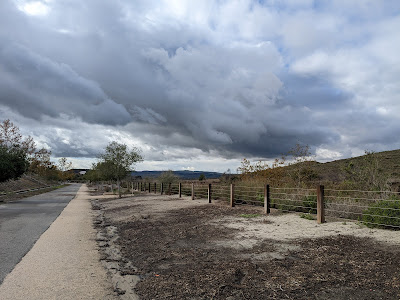What My Bones Know and the Drudgery of Maintenance
I know Stephanie Foo from her work on Snap Judgement and This American Life. (Here are a few of her podcasts.) Since I'm not on social media, I didn't know she had published a book until Libby's algorithm told me.
What My Bones Know is a memoir of Foo's journey recovering from C-PTSD, Complex Post Traumatic Stress Disorder. C-PTSD never goes away, but Foo puts up an extraordinary fight to collect and muscle memorize the tools necessary to mitigate symptoms.
Everything I appreciate about Foo's work as a reporter and producer -- her curiosity, her research, her anger, her irreverence, her humor -- make this book spectacular. As expected from her work, I laughed, I cried, I learned.
*Spoilers Follow*
Foo emphasises the current epigenetic research on heritable trauma. This is a particular interest of mine, and her description of the genetic mechanics involved is one of the clearer out there.
Without pardoning her abusive parents, Foo posits explanations for their behavior at the molecular level. They, and many immigrants, are the end result of generations of unspeakable trauma. Now, their bodies safe in upper-middle class America, their genes are still panicking for survival from starvation and war, disease and abandonment.
The unexamined trauma results in unexamined abuse. Foo's childhood is a nightmare. In adulthood, she is finally able to acknowledge that her parents do not, cannot, love her. They are too broken to love.
Armed with this information and a C-PTSD diagnosis, Foo gets to work. She spends years reading, taking classes, going to therapy, trying treatments. The work is arduous and often unrewarding, but she needs to do it. She is unwilling to live like her parents, unable to take responsibility, unloved, unloving. She will do better.
By the end of the book, Foo internalizes the work enough to see it pay off in real life. Her relationships flourish, her work improves. She is filled with cautious hope when the pandemic starts.
Then a surprising thing happens. Despite living in NYC, Foo feels mostly OK during the height of the pandemic. She realizes, with surprise, that she "was made for this moment." Her brain is wired to thrive in trauma, and "PTSD is only a mental illness in times of peace. The whole point of PTSD is to prepare you for being on the verge of death at any moment." She comes to a surprising appreciation for her PTSD, which is "transformed from a disability to a superpower."
I like my cardio outdoors, but it's been an odd week and I found
myself listening to this book on a stair machine. Cardio machines are bad medicine for me. I'll choke it down, but only because I know I need it. Performing an arduous version of something I otherwise love is a buzz-kill, and made me think of Foo's long and often painful march to healing. Many people would have bailed. Thankfully, she didn't.
I borrowed this book through my library. Read by the author, it is 10 hours and 3 minutes.



Comments
Post a Comment